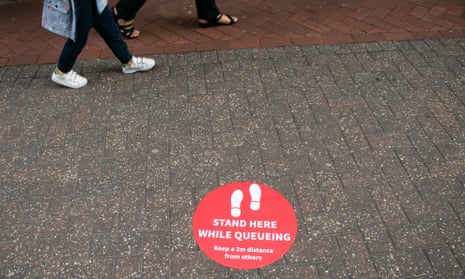As we see the return of the sunshine this week, and as the number of confirmed cases and deaths in the UK continues to fall, it can feel as if the worst of the pandemic is over.
Far from relaxing, the government should be using this respite to make long-term plans on how to coexist with the virus until a vaccine can be found. Time is running out – when the cold and damp weather sets in, the virus will thrive. Test, trace and isolate schemes will be stretched as soon as flu symptoms rise and overlap with Covid-19 symptoms. Avoiding a second lockdown must be the imperative to ensure that the sacrifices made by the British public over the past 13 weeks do not go to waste.
Currently the government’s drive to open up as quickly as possible bears a risk of another increase in infections, similar to what is being experienced in several US states such as Florida, Arizona and Texas, and in Iran. Ian Diamond, the UK’s national statistician, warned that the UK currently faces 3,000-4,000 new infections per day and only a fraction of those are being picked up through the test and protect scheme. By allowing the virus to spread during the summer months the government is creating a ticking time bomb that will go off as autumn arrives.
Covid-19 is too dangerous to let spread through a population unchecked. Not only because of the difficulty of staying within health service capacity and overall mortality, but also because of the morbidity it entails. The FT has estimated that 65,000 excess deaths have occurred so far during the Covid-19 pandemic in the UK. In addition, an increasing number of long-term health complications are being seen in those who have recovered from the virus, and often in those who were healthy previously. Covid-19 is not the flu, but a multi-system disease that has surprised doctors in how it presents and how it develops within the human body. Important questions about immunity remain about whether re-infection is possible, or even immune enhancement where individuals get a more severe version of the same virus upon repeated exposure, such as with dengue fever.
That is not to say countries should remain in lockdown until a vaccine is discovered, given the economic and social costs. Instead, each country will need to find the “least worst” path out of this situation based on their populations, public health system and capacity. An increasing number of countries are trying to suppress the virus to a low level and, where possible, eliminate it before reopening their schools, shops and restaurants. Not only New Zealand, but also Australia, Thailand, Vietnam, the Faroe Islands, Iceland and countries in east Asia. Once the virus has all but disappeared, governments in these nations are able to identity imported cases – such as the two women who travelled from the UK who reintroduced Covid-19 to New Zealand – and limit their spread. It is possible to both eliminate the virus and reopen economies – but it has to be done cautiously and with close monitoring.
As an island, Great Britain is in a strong position to eliminate the virus and fully reopen schools, bars and theatres as well as bringing back sports matches and weddings, without pointless debates about 1 or 2 metre distancing measures. This would require mass testing – to catch all symptomatic and asymptomatic carriers – tracing of contacts and isolation for those individuals. The public needs to be convinced that the short-term pain is worth it, including continued physical distancing from others, use of face masks when distancing is not possible, and putting aside short-term self-interest for a few more months. Local dashboards should be created using the first part of postcodes, so individuals can understand transmission within their communities and ensure their behaviour contributes to a downwards push. Covid-19 will burn itself out if it has no other hosts to transmit it.
A clear push towards a “zero coronavirus” Britain should have been the priority when the country went into late lockdown on 23 March. And while other countries raced ahead with testing and tracing, and border control, and face masks, the UK government seemed to think that locking down alone was the solution, instead of a window of extremely costly time to aggressively go after the virus and drive it out. As a Chinese colleague told me in early March, implement key public health measures now and you’ll be out of the woods by mid-June.
The UK government has missed chance after chance to suppress this virus and reopen the economy as quickly as possible. The summer months offer it a narrow timeframe to reassess its overall strategy in managing this outbreak. It feels like decisions are being made based on polling to see how this affects government approval ratings, rather than based on what is needed to get through this crisis. Planning and leadership are required to look at where the country needs to be, then work back from that to implement the key measures to get there. All of our lives, jobs and futures depend on it.
Prof Devi Sridhar is chair of global public health at the University of Edinburgh

